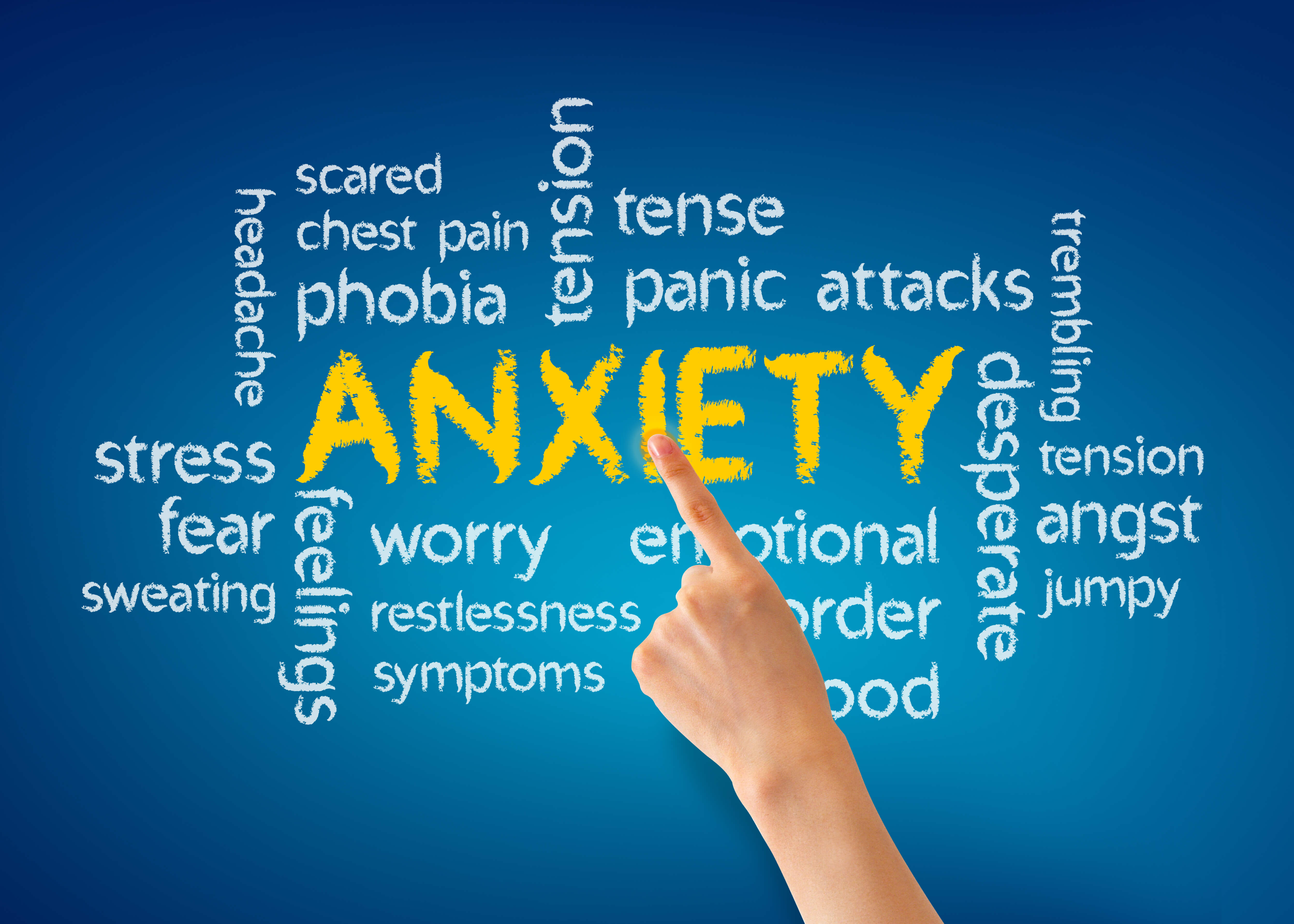

It is normal to experience anxiety occasionally, but people with anxiety disorders have frequent intense, excessive, and persistent fear and worry about everyday situations.
Anxiety disorders result in recurrent episodes of sudden feelings of intense fear, terror, or anxiety, which peak within minutes (panic attacks).
These anxious feelings tend to interfere with daily life; they are difficult to control and are out of proportion relative to the actual danger. They can also last for a long time before you recover.
Anxiety disorder patients can avoid situations or places to prevent feelings of terror, anxiety, or fear. Its symptoms can start in childhood or teenage years and proceed into adulthood.
 Anxiety disorders are the most common mental illness in the U.S.
Anxiety disorders are the most common mental illness in the U.S.
Symptoms of Anxiety Disorder
Below are some of the signs and symptoms of anxiety disorder:
- Having an increased heart rate
- Feeling tense, nervous, or restless
- Breathing rapidly (hyperventilation)
- Feeling a sense of impending danger, doom or panic
- Trembling
- Sweating
- Trouble thinking or concentrating about anything apart from the present
- Sleeping troubles
- Feeling tired or weak
- Having difficulty managing worry
- Having the urge to avoid situations and places that trigger anxiety
- Experiencing gastrointestinal problems
Types of Anxiety Disorders
A person can have one or multiple anxiety disorders. At times, anxiety disorder results from treatable health conditions. Some examples of anxiety disorder include Agoraphobia which makes you fear and avoid situations or places that may make you panic, feel trapped, embarrassed, or helpless.
Anxiety Disorder Caused by a Medical Condition
The anxiety disorder caused by a medical condition manifests itself through intense panic or anxiety caused by a physical health problem.
Selective Mutism
Selective mutism is a consistent failure of a child to speak in specific situations or places, such as school. They can often speak in other settings, such as home or with close friends and family. Selective mutism can affect one's life at school, work, and social functions.
Generalized Anxiety Disorder
The symptoms of generalized anxiety disorder include excessive and persistent anxiety and worries about events or activities, including common and routine issues. Such worries are out of proportion relative to the actual circumstance and are difficult to manage. As a result, they affect the way you feel physically. Generalized anxiety disorder usually occurs along with other anxiety disorders.
Panic Disorder
Panic disorder entails recurrent episodes of sudden feelings of intense fear or terror and anxiety. These feelings peak within minutes, resulting in panic attacks. Patients may experience feelings of impending doom, chest pain, shortness of breath, or rapid heart palpitations. Panic attacks can result in worries about them reoccurring or avoiding situations or places in which they happened.
Social Anxiety Disorder (Social Phobia)
Social anxiety disorder comprises high levels of fear and anxiety as victims avoid of social situations owing to feelings of self-consciousness, embarrassment, and worries about being viewed negatively or being judged by other people.
Specific Phobias
Specific phobias manifest by major anxiety when exposed to a specific situation or object and desire to avoid it. Specific phobias result in panic attacks in some patients.
Separation Anxiety Disorder
Separation anxiety disorder is a childhood disorder that makes a child excessively anxious when they are separated from their parents or people who have parental roles.
Substance-Induced Anxiety Disorder
Substance-induced anxiety disorder entails intense panic or anxiety that directly results from drug abuse, withdrawal from drugs, taking medications or exposure to toxic substances.
Getting Treatment for Anxiety Disorder
Anxiety Disorder treatment can help whatever form of anxiety you have. For more information on anxiety disorders and other medical conditions, do not hesitate to schedule an appointment with Joanne today.
© 2025 Joanne Martelli, PMHNP-BC. All Rights Reserved. Powered By Vertex Visibility.